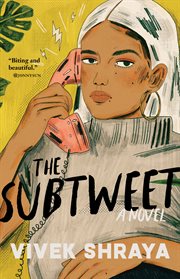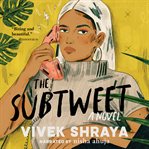Neela Devaki was an original. She was reminded of this fact shortly after she stepped out of her cab and into the Fairmont Hotel, the main site for the North by Northeast Festival. Zipping through the masses of musicians, fans and industry reps, she felt sorry for the chandeliers, which loomed above like golden flying saucers, forced to light up the dull networking that buzzed beneath them. But a conversation between two art students, draped in curated thrift wear featuring strategically placed rips and holes, brought Neela to a reluctant halt. "I was totally working on something like this for my final project. I guess originality really is dead," one of the women sighed, taking photos of herself, duck-faced with a pop-up art installation. Neela skimmed the artist's statement. The frosted toothpick statues of penises were "a comment on the current global epidemic of white demasculinization." Why not just hang a red and white flag that said Make Art Great Again? Brevity was the true endangered species. "You should still do it. All the good ideas are taken anyways. Isn't that kind of freeing?" replied the other. Neela snorted. She would never offer that sort of "comfort" to a stunted peer. No wonder she was bored with most of the art she encountered. She considered sharing with these young women that she always knew she was on the verge of invention at the precise moment when originality felt impossible. That instead of surrendering to despair, she would needle in and out and through her brain until an idea surfaced -- naked, stripped of predictability and familiarity. That this process often required her to sing a phrase over and over for hours until the syllables carved their own unique melody out of hollow air. She was certain that the reiteration planted the words in her vocal chords so that when she sang them, they carried the imprint of her body. By embedding herself into her song, she muted any risk of passing off mimicry as art. Why wasn't fully committing to creation more desirable than observing what everyone else was doing and doing the same? But defending the sanctity of originality to strangers at an art exhibit would make her seem like an egomaniac. And no one listens to a cocksure woman. Excerpted from The Subtweet: A Novel by Vivek Shraya All rights reserved by the original copyright owners. Excerpts are provided for display purposes only and may not be reproduced, reprinted or distributed without the written permission of the publisher.




